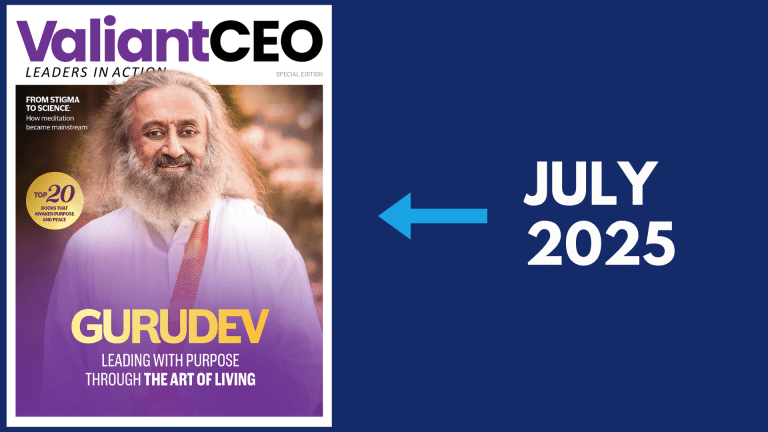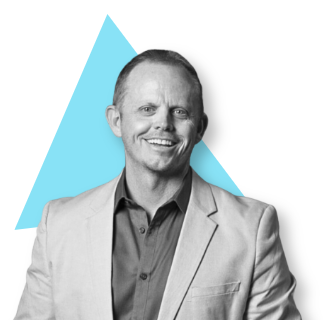Founder & Director of Halo Marketing & Sydney Tennis NSW | 8x APAC Business Awards Finalist | Helping businesses grow, innovate & lead with impact
Company: Halo Marketing
We are thrilled to have you join us today, welcome to ValiantCEO Magazine’s exclusive interview! Let’s start off with a little introduction. Tell our readers a bit about yourself and your company.
Michael Ripia: My name is Michael Ripia, and I’m the founder and director of Halo Marketing, Synero Systems, and Sydney Tennis NSW. Over the past decade, I’ve dedicated myself to building businesses that not only scale but also create lasting impact.
At Halo Marketing, we’ve helped brands grow into 6–7 figure successes through authority-driven marketing, lead generation, and automation. Synero Systems, my SaaS platform, focuses on giving service-based businesses the tools they need to streamline and scale effectively. And with Sydney Tennis NSW, a community I started in 2010, we’ve grown to over 20,000 members, making it one of the most recognized tennis communities in Australia.
Along the way, I’ve been honored as a finalist in 8+ APAC business awards, and Halo Marketing has grown to $1.25M+ in annual revenue. But beyond the numbers, what drives me is building businesses that endure, empowering people, and helping other entrepreneurs break through their own ceilings.
What was the defining moment or challenge that prompted you to pivot your business model, and how did you recognize it was time for a change?
Michael Ripia: One of the biggest defining moments for me came when I realized that relying on traditional marketing methods alone wasn’t enough to truly scale my agency. Early on at Halo Marketing, we were delivering good results, but growth felt capped…clients wanted more than just campaigns, they wanted predictable systems that could generate authority, automate sales, and reduce their reliance on outdated tactics.
The challenge was clear, if I kept running the business as “just another marketing agency,” we’d be stuck in a competitive, price-driven race. The turning point came after losing a client I thought we’d built a long-term relationship with. It wasn’t because of poor results, but because they chose a competitor who promised a more automated, scalable approach. That moment hit me hard I realized it wasn’t enough to be good at marketing…we had to build systems that made growth inevitable.
So I pivoted the business model. Instead of focusing solely on campaigns, we built what’s now our Done-For-You Authority & Automation System, helping coaches, consultants, and service-based businesses generate consistent leads and revenue without being stuck in the day-to-day. Recognizing it was time for a change came from listening to clients, but also from honestly looking at the gaps in my own business.
My advice to other founders is this, don’t wait until you’re forced into a pivot. Pay attention to the early warning signs when clients start asking for more than you’re offering, when your growth plateaus, or when you feel like you’re in a cycle of “busy work” rather than building real value. That’s usually the market nudging you to evolve.
Can you walk us through the most significant change you made to your business model and the immediate impact it had on your company’s trajectory?
Michael Ripia: The most significant change I made to our business model was shifting Halo Marketing from being a traditional service-based agency into a systems-driven growth partner. In the early years, we were focused on delivering one-off campaigns like social media, lead generation, or content strategies but I quickly saw that this approach left clients constantly chasing results and us stuck in a cycle of trading hours for revenue.
The pivot came when we introduced our Done-For-You Authority & Automation System, which integrates reputation management, automated lead nurturing, and authority-building content into a single streamlined solution. Instead of piecemeal services, we built scalable systems that allowed clients to generate leads, convert them, and grow without being dependent on constant manual effort.
The immediate impact was transformational. Our client retention rates increased because we were solving bigger, longer-term problems rather than delivering short-term wins. Revenue grew more predictably, and internally, my team could focus on strategy and innovation instead of firefighting campaign-to-campaign. Most importantly, we stopped being seen as “just another agency” and positioned ourselves as a partner in growth.
That single shift took us from competing on price to competing on impact, and it completely changed the trajectory of the business.
How did you convince your team, investors, or stakeholders to embrace such a dramatic shift, especially if it involved risk or uncertainty?
Michael Ripia: Convincing my team to embrace the pivot wasn’t about selling them on a risky idea, it was about showing them the cost of standing still. I laid out the reality: if we continued as a traditional agency, we’d always be chasing the next client, under constant pressure to deliver quick wins that didn’t create lasting impact. That model might keep the lights on, but it wouldn’t scale and it certainly wouldn’t set us apart.
I knew risk was involved, but I reframed it: staying the same was actually the bigger risk. To bring everyone on board, I shared case studies and early tests that proved how automation and authority systems could deliver stronger results for clients. Then I built transparency into the process, inviting the team into strategy sessions so they felt like co-creators, not just executors of my vision.
For stakeholders, the argument was even clearer. I highlighted how a systems-driven model meant predictable recurring revenue, higher client retention, and stronger positioning in a crowded market. I leaned on my track record the growth we’d already created, the awards we’d earned, and the trust we’d built to show that this wasn’t a gamble, it was the natural evolution of a business already primed for scale.
What was the biggest obstacle you faced during the pivot, and how did you overcome it to ensure the new model’s success?
Michael Ripia: The biggest obstacle wasn’t the technology or even the strategy, it was breaking free from the mindset that had kept us “safe” as a traditional agency. For years, the agency model conditioned us to measure success in billable hours, short-term campaigns, and client volume. When I decided to pivot to a systems-driven model, the real challenge was unlearning that conditioning and convincing others to do the same.
Clients were used to asking, “What can you do for me this month?” and some even pushed back when we shifted to long-term, authority-and-automation systems. They wanted quick wins, not infrastructure. That was tough, because walking away from projects that didn’t align with the new model meant turning down revenue, something every entrepreneur wrestles with when cash flow is on the line.
What got us through was discipline and proof. We doubled down on case studies, showing how our frameworks generated compounding results higher retention, lower acquisition costs, and stronger positioning. Internally, I trained the team to stop thinking in deliverables and start thinking in outcomes. It was a cultural reset as much as a business one.
The turning point came when we saw clients achieving results that spoke louder than any pitch could. Once the data backed us up, the model sold itself. The lesson for me was that the hardest part of change isn’t building the system; it’s having the conviction to hold your ground when it feels easier to fall back into old habits.
Looking back, what’s one key lesson from your pivot experience that you’d share with other CEOs considering a major business model shift?
Michael Ripia: The biggest lesson I’d share is this…don’t confuse movement with progress. When I first built my agency, we were busy, winning awards, signing clients but deep down I knew we weren’t building something scalable or sustainable. That realization hit me hard during the pivot. It taught me that growth isn’t about saying yes to everything, it’s about saying no to the wrong things so the right model can breathe.
For any CEO considering a major shift, my advice is to build conviction before consensus. If you wait until everyone around you fully understands your vision, you’ll be waiting forever. Change always feels risky in the moment to clients, to your team, even to yourself but risk is relative. For me, the real risk was staying stuck in a model that capped both impact and freedom.
So the lesson is get clear on the future you’re building, commit to it fully, and let results do the convincing. Momentum follows conviction.






